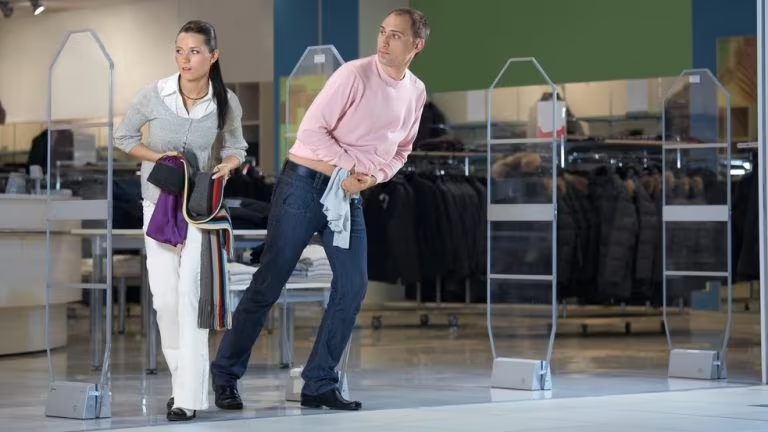„From the available statistics, it is clear that two out of three investigated frauds are caused by employees or they are directly involved," stated Michal Moroz, Chief Business Development Manager at Securitas, a security agency operating in 58 countries around the world. Properly implemented security measures can protect businesses from many criminal acts and property losses.
Petr Moroz from Screening Solutions reminded us of psychological studies that divide the public into three groups based on character: Roughly 25 percent are people with a strong tendency towards unethical behavior and fraud whenever possible. Another 25 percent are individuals who are honest under all circumstances. The remaining half adapts their behavior according to life situations, established rules, and opportunities.
Who is a typical thief?
„You don't want employees from the first group in your company at all. Therefore, it is crucial to verify the honesty of potential colleagues at the moment they apply for a job, for example, by using references or checking the truthfulness of their resume. Today, this can be easily achieved and, thanks to electronic tools, it is also cheap and fast. With the majority of the group of people who are characteristically unremarkable, you can work in the company with the help of well-established compliance processes and functioning risk management," said Moroz.
According to surveys, the typical perpetrator of a crime in the workplace is a man aged 35 to 55, who has been with the company for six or more years. One-third of them are people in executive and managerial positions, and in two-thirds of cases, they collaborate with someone else as an organized group.
In the Czech Republic, unlike Slovakia and other European countries, legal protection for so-called whistleblowers, i.e. persons reporting offenses, is currently lacking, according to experts. However, surveys by multinational organizations show that up to 40 percent of criminal offenses were first detected with the help of a tip from someone. Internal audit came in second place with 20 percent of detecting crime. Therefore, companies should have internal rules for reporting offenses that allow for immediate and discreet detection and resolution of incidents.
Protection is improving
The SSI Group, which provides security services for several hundred sites, including shopping centers in the Czech Republic and Slovakia, also admitted that most stores are well prepared for customer theft. However, problems arise with losses that come from within their own ranks. Companies and store owners are therefore forced to continually improve their internal procedures and control mechanisms to prevent damage caused by their own employees.
Thieves mainly target goods that can be quickly cashed in at pawn shops or on the black market. "These include mobile phones, tablets, gaming consoles, as well as fashion, beverages and food, perfumes, and cosmetics," said Michal Cícer from SSI Group.
Earlier this year, a young employee at the Škoda Auto plant in Kvasiny, Rychnov, was caught stealing dozens of steering wheel airbags and several steering wheels from newly manufactured luxury models, causing damage worth over 400,000 crowns. According to the police, the young man stole auto parts from December of last year to the middle of this January and then sold them personally or through the internet. The police solved the case in collaboration with the automaker's security department.
Such frauds and thefts are not only prevalent in the Czech Republic and other former Eastern Bloc countries. According to a report by the American Chamber of Commerce, at least 75 percent of employees commit at least one workplace theft during their lifetime, with 37.5 percent doing so regularly.
Estimated loss
Retailers may be doing their best to fight theft, but they also factor it into their business plans. Based on their past experiences and statistics, they calculate what is known as "shrinkage," which is the expected value or volume of merchandise that will be stolen.
"Retailers fight theft as best they can, but they also factor it into their business plans. Based on their previous experiences and statistics, they calculate the so-called "shrinkage," i.e. the expected value or volume of stolen goods," says Jaroslava Hanková, a partner at the consulting group Apogeo. "The amount of shrinkage determined in internal policies must be economically justified, and in the event of a tax administrator's inspection, it must be properly documented," warns Hanková.
"When a retailer finds, based on inventory, that the physical condition of the goods does not correspond to the recorded condition, i.e. it is lower, then we are talking about a shortfall. The store must determine how the shortfall occurred and, if necessary, prescribe the responsible employee the appropriate compensation according to internal procedures," describes Hanková. She says that further complications arise if the store operator claimed a VAT deduction on the stolen goods. In that case, they are obliged to adjust this deduction.




